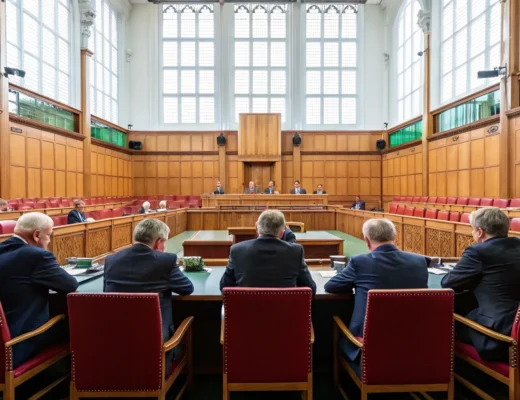
State employees’ pensions in North Carolina won’t be invested in Bitcoin or other cryptocurrency—at least, not yet. The House Commerce Committee put on hold Tuesday a new bill that would allow the State Treasurer to invest potentially billions of dollars from the State Pension Plan and other government accounts into cryptocurrency, as lawmakers expressed skepticism about the proposal’s wisdom. Supporters assert that pension plans could make substantial gains by investing in cryptocurrency, betting the market will keep rising.
Critics, including the State Employees Association of North Carolina (SEANC), argue that politicians shouldn’t gamble with the pension funds that state workers expect once they retire. The bill would permit many state investment funds, including the pension plan and the Highway Trust Fund, to allocate as much as 10% of their money into cryptocurrency. The multi-billion-dollar pension plan is the largest affected and has drawn significant attention.
Many state government jobs pay less than similar positions in the private sector, but the state uses the promise of a pension upon retirement to attract and retain workers. Flint Benson, a former state prison worker and now a lobbyist for SEANC, stated that the legislature would be making a mistake in putting people’s pensions into risky investments. “Bitcoin has been a roller coaster at best, and state employees and retirees do not like the conversation about investing in this highly volatile currency,” Benson told the committee on Tuesday.
Two years ago, one Bitcoin was worth about $20,000. On Tuesday, it traded more than four times that amount, above $88,000. However, it was trading at over $100,000 last month and has taken a sharp dive recently.
Bitcoin isn’t the only cryptocurrency on the market, but it is the most well-known and has the largest market cap. Supporters of the proposal say the bill is designed to minimize risk by focusing on exchange-traded funds (ETFs) instead of single currencies like Bitcoin. Rep. Stephen Ross, R-Alamance, dismissed Benson’s concerns as “scare tactics” and misinformation.
Despite this, the committee wasn’t entirely convinced. It delayed a vote indefinitely to allow more time for cryptocurrency research and to hear from State Treasurer Brad Briner, who has been in office for two months, about how he would handle the new investing power this bill would grant.






